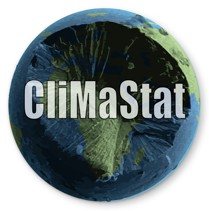
Ocean warming and acidification (OWA) are two of the major consequences of global climate change. Such processes are proved to affect the seawater carbonate chemistry threatening many marine organisms that critically depend on the secretion of calcium carbonate to produce calcified hard parts. Statoliths are non-skeletal carbonates included in most invertebrates’ gravireceptors, responsible for the gravitational orientation involved in many behavioural responses. In marine bivalves and gastropods, these structures are formed in early life playing a key role on major larval behaviours such as feeding, swimming, etc. In this sense, statolith malformation may impact dispersion, migration, and even survival, with potential consequences on populations’ establishment, replenishment, and ultimately perpetuation. Beyond the high ecological relevance, many species in these groups are also food resources, some of them dominating global shellfish fisheries and aquaculture known to be threatened by OWA. Production failure under increased acidity has been reported and attributed to an abnormal calcification of shells, but the potential sensory dysfunction by statolith malformation, which is very likely, has never been equated. Project CliMaStat arises to fill this knowledge gap and to show if and how STATOLITH MALFORMATION AFFECTS THE SENSORY FUNCTION OF BIVALVES AND GASTROPODS UNDER OWA EXPECTED SCENARIOS, knowing that an abnormal calcification of statoliths might induce behavioural disorders impacting life cycles, wild populations, fisheries and aquaculture production.
With a multidisciplinary research team, CliMaStat will integrate methodologies from areas as different as complementary: biology, ecology, physiology, geochemistry, and physics. This perspective will allow the development and implementation of an integrated approach, bringing together all the research team multiple expertise to achieve the proposed goals and produce scientific knowledge of global relevance in the context of ocean climate change and their impacts on ecosystems and their services.

